Gogo's Galileo Service Nears Launch with Successful Global Connectivity Test
Tuesday, 02 April 2024 12:27 Gogo Business Aviation (NASDAQ: GOGO) recently reached a significant achievement in the development of its Gogo Galileo global broadband service by successfully completing end-to-end connectivity testing using the HDX antenna on the Eutelsat OneWeb Low Earth Orbit (LEO) satellite network, signaling a crucial step towards the service's commercial debut later this year.
This advancement foll
Gogo Business Aviation (NASDAQ: GOGO) recently reached a significant achievement in the development of its Gogo Galileo global broadband service by successfully completing end-to-end connectivity testing using the HDX antenna on the Eutelsat OneWeb Low Earth Orbit (LEO) satellite network, signaling a crucial step towards the service's commercial debut later this year.
This advancement foll NASA Develops New Software to Optimize Freshwater Observation Missions
Tuesday, 02 April 2024 12:27 In an era where Earth's freshwater resources are increasingly under scrutiny, NASA has taken a significant step forward by developing a software tool designed to enhance the efficiency and effectiveness of science missions aimed at observing terrestrial freshwater. Spearheaded by Bart Forman, an Associate Professor at the University of Maryland, in collaboration with the Stevens Institute of Tec
In an era where Earth's freshwater resources are increasingly under scrutiny, NASA has taken a significant step forward by developing a software tool designed to enhance the efficiency and effectiveness of science missions aimed at observing terrestrial freshwater. Spearheaded by Bart Forman, an Associate Professor at the University of Maryland, in collaboration with the Stevens Institute of Tec Unboxing Ariane 6 ballast and adapter
Tuesday, 02 April 2024 11:18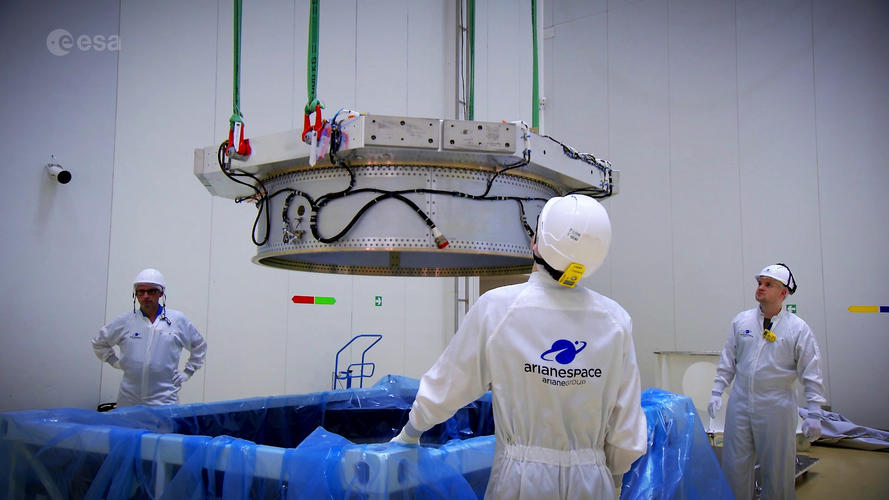 Video:
00:01:24
Video:
00:01:24
Scenes from Europe’s Spaceport in French Guiana during the unloading of the launch vehicle adapter and ballast at the final assembly building for the first Ariane 6 flight on 19 January 2024.
Placed on the top of Europe’s new rocket the launch vehicle adapter connects the launcher to the ballast and passengers for its first flight. The payloads will arrive later this year and prepared at the payload preparation facilities to prepare the cargo for launch and connecting everything to this payload adapter.
Once complete the payload is put under the protective nose cone. This fairing will ensure the
Terran Orbital records higher revenues as strategic review continues
Tuesday, 02 April 2024 10:15

Ariane 6 launches: NASA’s radio detective CURIE
Tuesday, 02 April 2024 07:59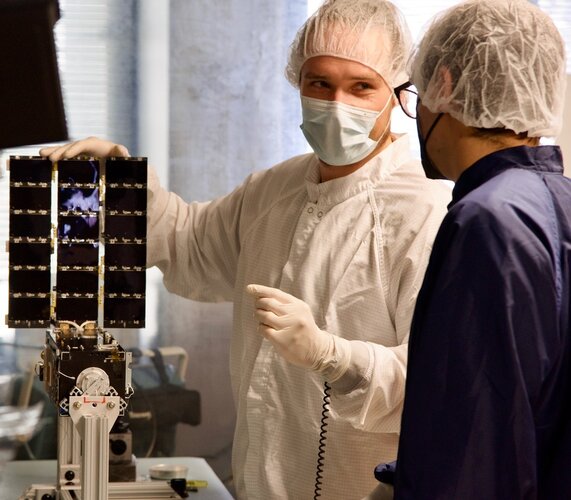
Europe’s newest rocket soon launches, taking with it many space missions each with a unique objective, destination and team at home, cheering them on. Whether launching new satellites to look back and study Earth, peer out to deep space or test important new technologies in orbit, Ariane 6’s first flight will showcase the versatility and flexibility of this impressive, heavy-lift launcher.
What to know about next week's total solar eclipse in the US, Mexico and Canada
Tuesday, 02 April 2024 07:05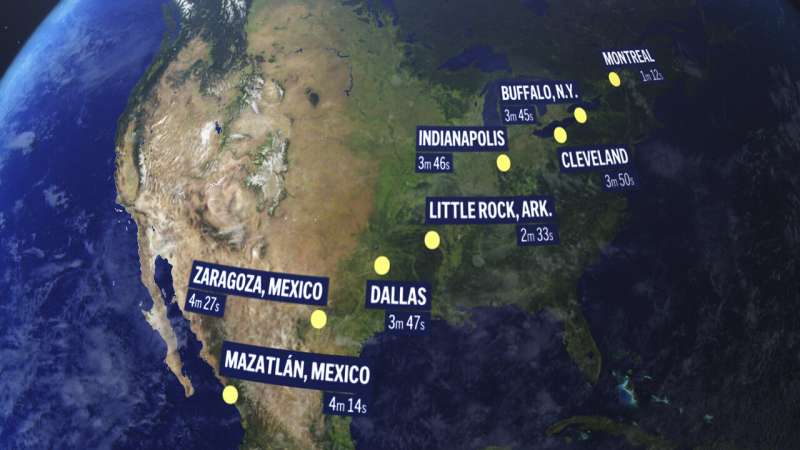
North America is on the verge of another masking of the sun.
Monday's total solar eclipse will make landfall along Mexico's Pacific coast and cross into Texas and 14 other U.S. states, before exiting over Canada.
It will last almost twice as long, with an even wider audience, than the total solar eclipse that stretched coast-to-coast in the U.S. in 2017.
The moon will shroud the sun for up to 4 minutes, 28 seconds, a spectacle normally unfolding in remote corners of the globe but this time passing over major cities like Dallas, Indianapolis and Cleveland.
Satellite terminal supplier CopaSAT storms into military market
Monday, 01 April 2024 19:13

NASA's VIPER robotic moon rover team raises its mighty mast
Monday, 01 April 2024 18:56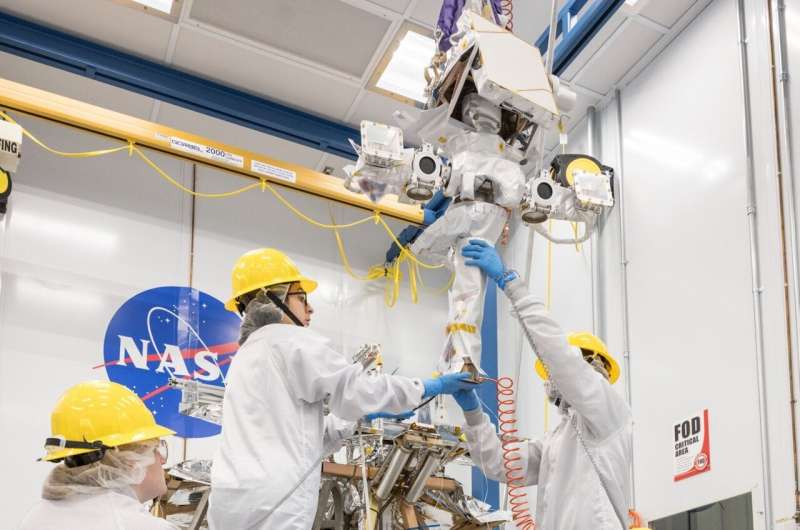
NASA's VIPER—short for the Volatiles Investigating Polar Exploration Rover—now stands taller and more capable than ever, thanks to its mast.
VIPER's mast, and the suite of instruments affixed to it, looks a lot like the rover's "neck" and "head." The mast instruments are designed to help the team of rover drivers and real-time scientists send commands and receive data while the rover navigates around hazardous crater slopes, boulders, and places that risk communications blackouts. The team will use these instruments, along with four science payloads, to scout the lunar South Pole.
The next total solar eclipse is in April: Here's what to know and where to see it
Monday, 01 April 2024 17:40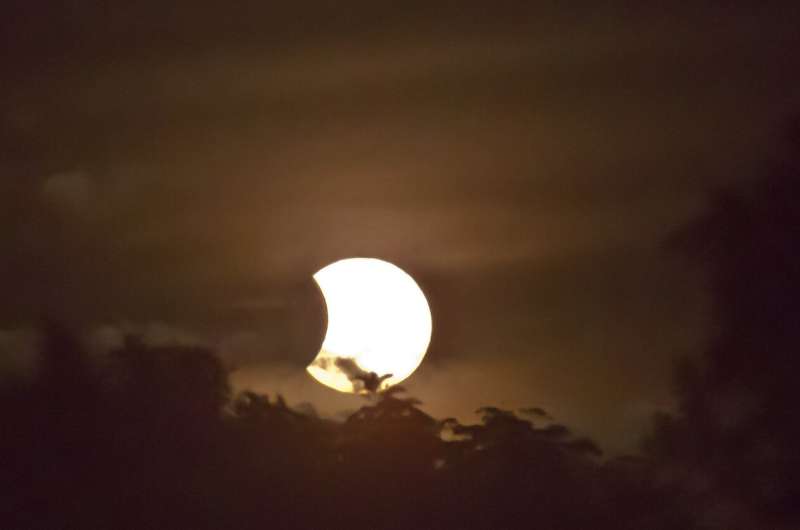
Don't be alarmed when the sky goes dark on April 8. A total solar eclipse will traverse North America, crossing Mexico, the United States, and Canada. This event will mark the only total solar eclipse visible from the United States until 2044. The full path of totality, as it's called, will begin on Mexico's Pacific Coast, cross northwestern Pennsylvania and New York state, and exit at the Atlantic Coast of Newfoundland, Canada.
A total solar eclipse occurs when the moon passes between the Earth and the sun, completely obscuring the sun from view. Those situated in the path of totality will see the moon fully cover the sun, the resulting shadow plunging the area into darkness during the day.
If the weather permits, spectators may also observe the "ring of fire," a term NASA uses to describe the stunning visual effect when the sun's outer atmosphere is visible as a luminous ring around the moon's silhouette against the darkened sky.
Here's what you need to know to experience this awe-inspiring event.
When is the next total solar eclipse?
The total solar eclipse will occur on April 8.
Tips to safely watch the total solar eclipse
Monday, 01 April 2024 15:47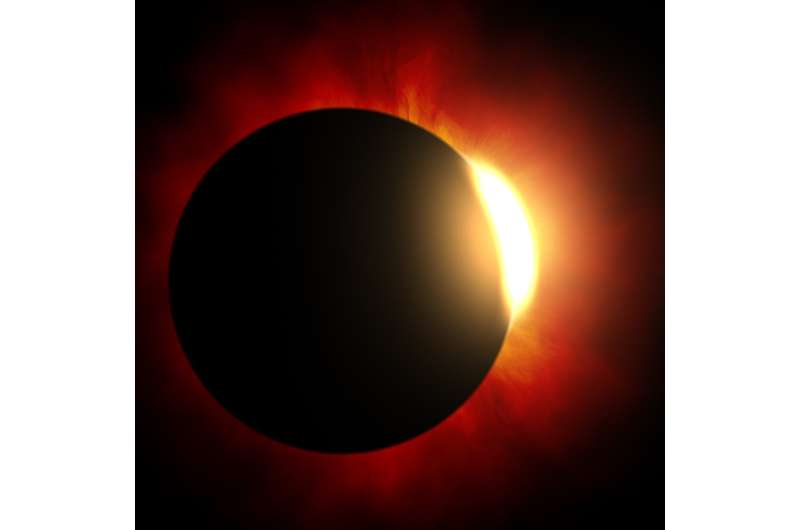
On April 8, North America will experience a total solar eclipse, stretching across parts of Mexico, the U.S. and Canada, with approximately 31.6 million people living in the path of totality. According to NASA, every contiguous state in the U.S., along with parts of Alaska and Hawaii, will witness at least a partial solar eclipse.
With all eyes toward the sky during an eclipse, Dr. Dawn Davis, a dermatologist at Mayo Clinic, says it's important to protect your eyes and your skin from ultraviolet (UV) light damage. You'll need eye protection with special-purpose solar filters for viewing, and you should take precautions to safeguard your skin from the sun's rays during long periods outside.
And when it comes to protection, she says sunscreen is for the skin only—never for the eye itself.
A total solar eclipse is when the moon completely blocks the sun, temporarily darkening the sky. Looking directly at the sun can cause damage to the retina due to the strong amount of UV light.
"If you would like to see the solar eclipse, you will need to have special solar eclipse glasses," says Dr.
Foust Forward | The role of a reluctant regulator in space sustainability
Monday, 01 April 2024 13:30

Parsons to be system integrator for TraCSS space traffic coordination system
Monday, 01 April 2024 10:18







